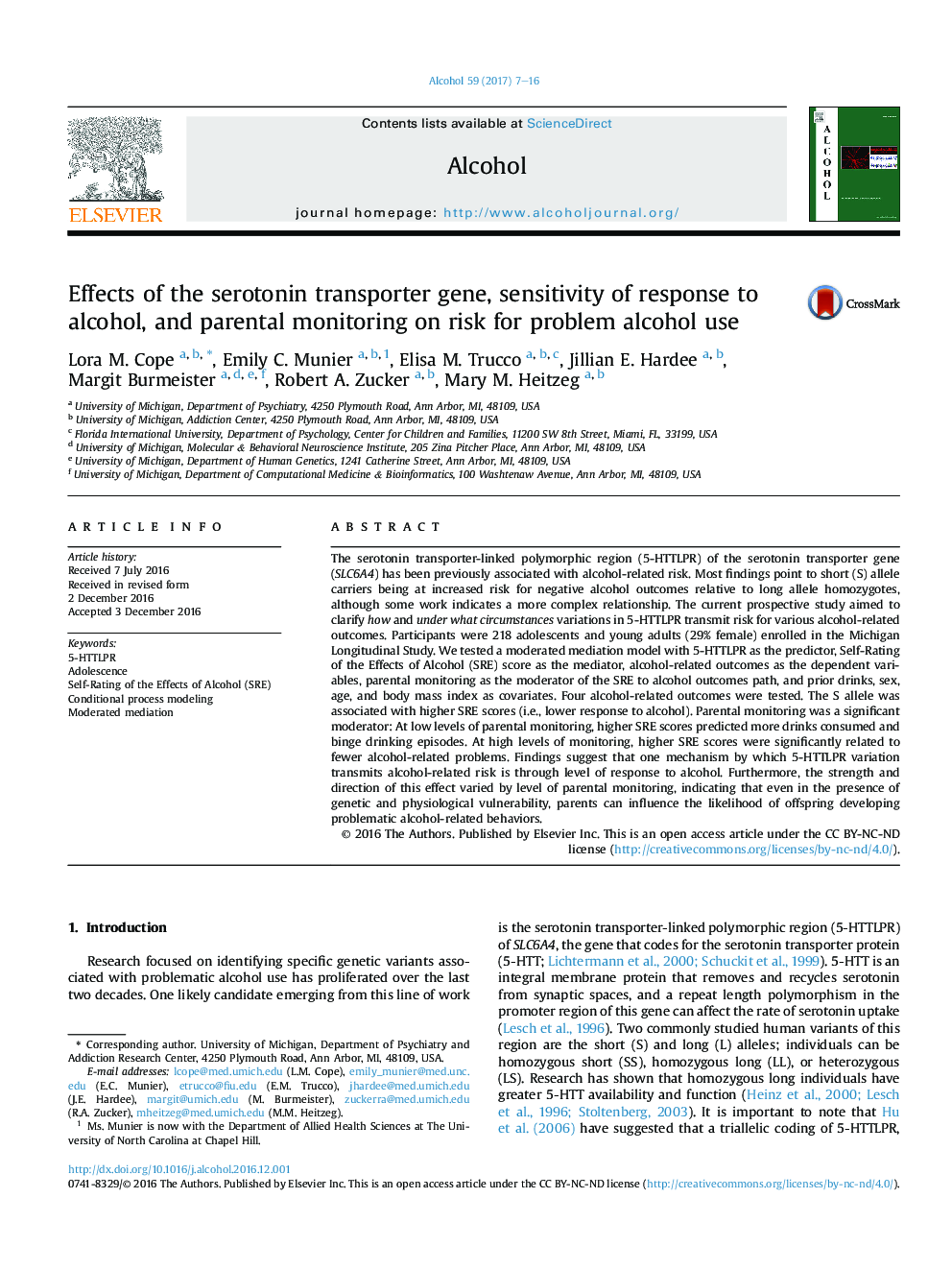| کد مقاله | کد نشریه | سال انتشار | مقاله انگلیسی | نسخه تمام متن |
|---|---|---|---|---|
| 5119715 | 1485970 | 2017 | 10 صفحه PDF | دانلود رایگان |
- Genotyping for the serotonin transporter-linked polymorphic region (5-HTTLPR).
- Lower subjective sensitivity to the effects of alcohol among S allele carriers.
- More drinking and binge drinking with low parental monitoring.
- Fewer alcohol-related problems with high parental monitoring.
The serotonin transporter-linked polymorphic region (5-HTTLPR) of the serotonin transporter gene (SLC6A4) has been previously associated with alcohol-related risk. Most findings point to short (S) allele carriers being at increased risk for negative alcohol outcomes relative to long allele homozygotes, although some work indicates a more complex relationship. The current prospective study aimed to clarify how and under what circumstances variations in 5-HTTLPR transmit risk for various alcohol-related outcomes. Participants were 218 adolescents and young adults (29% female) enrolled in the Michigan Longitudinal Study. We tested a moderated mediation model with 5-HTTLPR as the predictor, Self-Rating of the Effects of Alcohol (SRE) score as the mediator, alcohol-related outcomes as the dependent variables, parental monitoring as the moderator of the SRE to alcohol outcomes path, and prior drinks, sex, age, and body mass index as covariates. Four alcohol-related outcomes were tested. The S allele was associated with higher SRE scores (i.e., lower response to alcohol). Parental monitoring was a significant moderator: At low levels of parental monitoring, higher SRE scores predicted more drinks consumed and binge drinking episodes. At high levels of monitoring, higher SRE scores were significantly related to fewer alcohol-related problems. Findings suggest that one mechanism by which 5-HTTLPR variation transmits alcohol-related risk is through level of response to alcohol. Furthermore, the strength and direction of this effect varied by level of parental monitoring, indicating that even in the presence of genetic and physiological vulnerability, parents can influence the likelihood of offspring developing problematic alcohol-related behaviors.
Journal: Alcohol - Volume 59, March 2017, Pages 7-16
